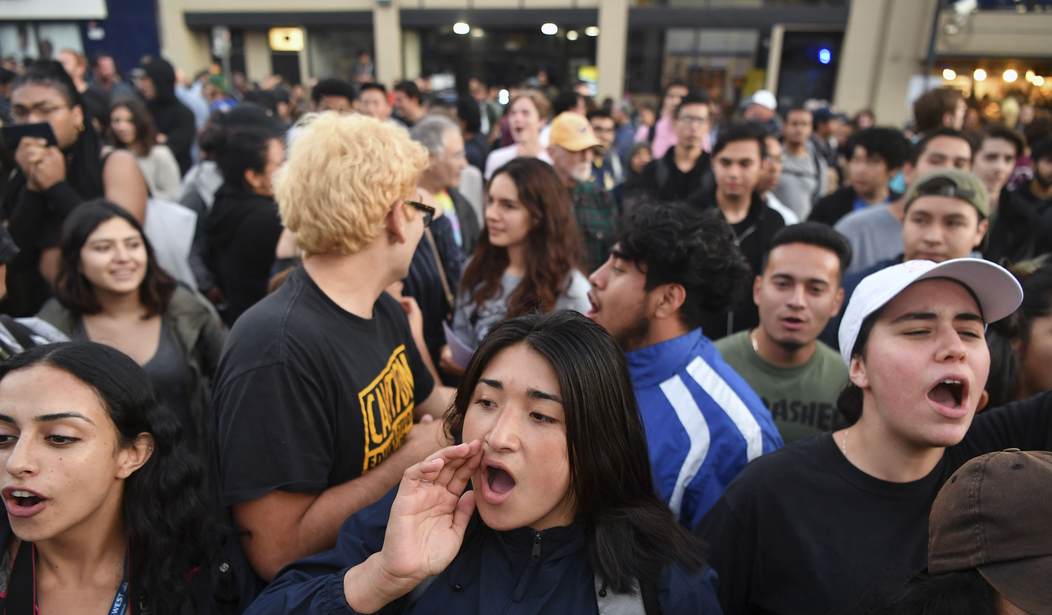As part of chancellor Carol Christ’s commitment to a “free speech year,” UC Berkeley recently launched a website devoted to explaining the ins and outs of free speech. From the Daily Californian:
The site includes links to articles about free speech, campus policies on hosting speakers and protesting safely, a list of upcoming free speech events and a timeline of the Free Speech Movement. There is also a Q&A page, as well as a moderated public discussion forum.
According to campus spokesperson Michael Dirda, the Office of Communications and Public Affairs began working on the project at the end of the summer and built the website on WordPress with no external costs over the last few weeks. The website will remain online for at least the next year.
You can visit the site here. At the bottom of the page is an FAQ which includes questions like: “Can UC Berkeley cancel a student-sponsored event if the administration or the campus community disagrees with the speaker’s views?” This seems like the kind of thing far left activists on campus might want to know. The good news is that Berkeley’s answer is unequivocal: “No, this would violate established law and the rights of student groups to invite whoever they wish to the Berkeley campus. Only student groups who invite speakers have the authority to disinvite them.”
Similarly, here’s how the site answers the question, “What is ‘hate speech’? Is it illegal?”
The term “hate speech” does not have a legal definition in the United States, but it often refers to speech that insults or demeans a person or group of people on the basis of attributes such as race, religion, ethnic origin, sexual orientation, disability or gender. While the university condemns speech of this kind, there is no “hate speech” exception to the First Amendment and it is only illegal if it falls into one of the categories described above. In fact, on many occasions, the Supreme Court has explicitly held that prohibitions or punishments for hateful speech violate the First Amendment.
Just because there is a First Amendment right to say something, however, doesn’t mean that it should be said. The First Amendment protects a right to say hateful things, but as a campus we strive to be a community where no one will choose to express hate.
One more excerpt and this is an important one: “Can people who oppose a speaker’s message use their own freedom of speech to drown out the offending words?”
No, freedom of speech does not give someone the right to drown out the words and speech of others; freedom of speech would mean little if the audience was able to silence anyone with whom they disagreed. Once a society starts down the path of condoning such de facto censorship, it creates the culture and conditions in which anyone’s rights of speech can be compromised.
Well done, Berkeley! The site does contain a page on “Keeping our students and community safe.” Does it undercut what was said in the FAQ? Not at all. The page does offer counseling services to anyone who feels triggered, but it also links to a message from Chancellor Christ which reaffirms that the heckler’s veto is not acceptable:
Defending the right of free speech for those whose ideas we find offensive is not easy. It often conflicts with the values we hold as a community — tolerance, inclusion, reason and diversity. Some constitutionally protected speech attacks the very identity of particular groups of individuals in ways that are deeply hurtful. However, the right response is not the heckler’s veto, or what some call platform denial. Call toxic speech out for what it is, don’t shout it down, for in shouting it down, you collude in the narrative that universities are not open to all speech. Respond to hate speech with more speech.
Chancellor Christ is saying exactly the right things and Berkeley’s free speech site is too. Of course, it would be great if none of this was necessary because students already understood and valued free speech, but that’s clearly not where we are. In addition, the fact that Ben Shapiro’s speech was not canceled or shouted down suggests the school seems to be moving in a good direction. Of course, the real test is yet to come.








Join the conversation as a VIP Member